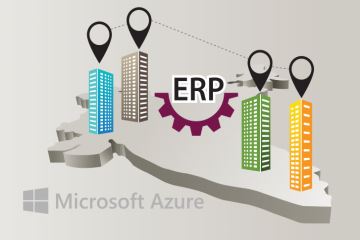Ready For ERP Deployment, But What Now?
Taking the leap of faith to install the Epicor enterprise resource planning (ERP) system comes with a variety of ways for ERP deployment to happen in your organization. But how do you determine which one is right for your business? Do you stick with the antiquated on-site hardware that has you looking over your shoulder at new technologies and ongoing maintenance costs? Do you spend more upfront on a cloud service that may come with functions you don’t require? Or, do you leave ongoing management of your Epicor ERP system in the hands of experts through a software as a solution (SaaS) deployment?

Here are factors to consider when determining your Epicor ERP deployment:
On-site hardware – The only question for clients still interested in utilizing on-site hardware for their Epicor ERP system is, “Why?” What is the value in the ongoing maintenance, updating and replacement of network centers and other hardware needs when your Epicor ERP system can easily function without it? Moving away from on-site hardware also eliminates the unpredictability that comes with breakdowns or slowdowns. There’s no need to cool and power a server room, cutting energy costs, as well. And instead of having a limited amount of storage for on-site use, you can have virtually unlimited data stored in the cloud.
On-site Azure – One of the main benefits of Epicor ERP Deployment with Microsoft’s Azure is being able to access the system anywhere and anytime without a virtual private network (VPN).
Moving Epicor to Azure also allows clients to scale corresponding hardware and infrastructure investments by managing user subscriptions as they fluctuate, like during deployment or seasonal peaks and valleys. Using Epicor ERP system on the Azure cloud requires no equipment, which minimizes the long-term investment for a new project and upfront capital required to install new infrastructure. By choosing this deployment option, our clients can scale their entire network, including the Epicor ERP system, to 99.995% uptime.
For security purposes, running Epicor ERP in the Microsoft Azure gives our clients geo redundancy – which replicates data and backs it up in a separate, physical location in case one site fails.
Epicor SaaS – High initial costs, lengthy and complex implementation projects and the staffing necessary to implement and maintain ERP systems typically are cited as barriers to ERP implementation or upgrading. However, when our clients choose Epicor ERP’s software as a service (SaaS) solution, we as the vendor host, manage and provide customers access to the software as a service through the Internet. Rather than pay for the software upfront, these customers license it on a subscription basis per user, month or specified number of transactions.
2W Tech employs a staff of consultants and engineers to help guide you toward the deployment plan that will work best for you and your customers. Give us a call today to help determine the best way to deploy your Epicor ERP system.
Read More:
Importance of Compliance in Business
Protect Those New Devices
Best Practices for ERP Success Whitepaper
Enjoyed reading this article? Click the button below to download this asset.
Download “Best Practices for ERP Success” Now
Best Practices for ERP Success Whitepaper
Please complete the form to download the file.